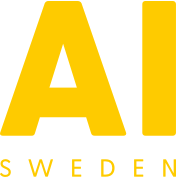A shared digital assistant for the public sector
AI Sweden, in collaboration with partners, is developing a digital assistant for the public sector based on AI technology. The objective is to streamline text-based tasks, freeing up time for more meaningful and interpersonal responsibilities.

Image: AI-generated via Midjourney
The assistant will be based on a Swedish language model, such as GPT-SW3, and trained using employee instructional data. The final solution will resemble ChatGPT but will be tailored specifically to the needs of the Swedish public sector and developed with consideration for our democratic values, norms, and societal diversity. Secure handling of inputted data is a central part of the process. Each employee's contribution helps improve the assistant, making it more intelligent, task-specific, and efficient.
The digital assistant will be crafted to ensure ease of use and accessibility for all employees, regardless of technical competence.
Examples of tasks the assistant will be able to help with:
- Summarize and analyze large amounts of text
- Improve and edit texts to make them more readable and structured
- Generate new texts such as reports, documents, and applications, customized according to specific templates and guidelines.
- Classify documents and create decision support in processing procedures
- Provide personalized support to citizens
Phase 1
- Ongoing until the summer of 2024
- Funded by Vinnova and its partners
- Participants from the public sector: Kungsbacka Municipality, Tjörn Municipality, Gothenburg City, Region Skåne, Region Halland, and Västra Götaland Region
- Intel is the project's hardware partner and will provide all the required hardware support
Phase 2
- Planned to continue until the turn of 2025/2026
- The number of municipalities and regions is expected to significantly increase during this phase of the project
Phase 3
- From 2026, the ambition is for the assistant to be ready for long-term operation and management
For more information, contact


